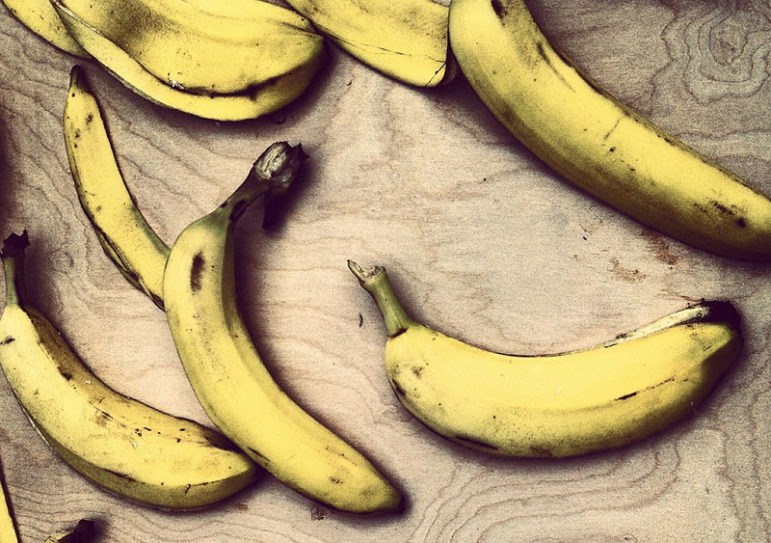
October 3, 2016; VICE, “Munchies”
Americans, in general, are a picky bunch when it comes to produce. We like our apples uniformly shiny, our parsnips precisely pointed, and our oranges as brightly hued as a certain presidential candidate. Fruit and vegetables that don’t make the cut—wrong color, strange shape, a little squishy—get discarded. That leaves a lot of imperfect-looking food wasted at the retail level—43 billion pounds in 2010 to be exact.
Unfortunately, millions of Americans can’t afford to be as selective about their food. The USDA reported 42.2 million people were living in food insecure households in 2015.
While the USDA, which defines food security as “access by all people at all times to enough food for an active, healthy life,” has launched nationwide initiatives to reduce food waste, other organizations are working on the local level to ensure unused fresh food gets to the people who need it, rather than ending up in a city landfill.
Los Angeles nonprofit L.A. Kitchen is doing this in a way that is also thoughtful about how else it can positively impact society while feeding hungry people. It was founded in 2013 by Robert Egger, who already had 24 years of “community kitchen” innovation under his belt with the success of D.C. Central Kitchen, whose work has been covered in earlier NPQ newswires (here and here). Started in 1989, D.C. Central uses unwanted food donated from restaurants and caterers in Washington, D.C. to provide culinary training, create jobs and feed the hungry. It is a model that has become self-sustaining and led to the creation of its West Coast counterpart.
Sign up for our free newsletters
Subscribe to NPQ's newsletters to have our top stories delivered directly to your inbox.
By signing up, you agree to our privacy policy and terms of use, and to receive messages from NPQ and our partners.
Like D.C. Central, L.A. Kitchen is staffed by people who might otherwise find it difficult to get meaningful work with a livable wage: recovering drug addicts, former gang members, ex-convicts and others who are looking for a second chance. Under the direction of professional chefs with impressive pedigrees, employees are taught culinary skills while preparing healthy meals for recipients that typically include single mothers and low-income seniors, two groups who are most often impacted by food insecurity.
In an interview with VICE, Egger explained the reasoning behind preparing meals from the donated ingredients, rather than simply passing on the ingredients themselves to those in need to prepare.
What’s someone like that going to do with a box full of persimmons? How are they going to store or know how to prepare a box of bok choy if they’ve never tasted it before? To trust that those things will get used and not just thrown out again is a huge leap of faith.
Instead, L.A. Kitchen staff are trained to use as much of the donated ingredients as possible, juicing slightly freezer-burned cucumbers into a healthy smoothie, turning somewhat soft tomatoes into a delicious sauce, and even using carrot tops to make a tempting chimichurri.
The California nonprofit is currently taking in 500 lbs. of food every day and turning it into 1500 meals, with a year-end goal of increasing its output to 2500 meals daily. In addition to its obvious benefits of cutting down on food waste, preventing recidivism, creating jobs and feeding the hungry, there are less obvious but equally important impacts, such as that on climate change. Food is the largest category of waste in municipal landfills, which are in turn the third- largest producer of methane in the country, one of the most prevalent greenhouse gases resulting from human activities. Additionally, people who are food insecure are often overweight, as unhealthy food tends to be cheaper and easier to access. This may result in a host of related health issues such as diabetes and high blood pressure, which in turn can raise health care costs.
L.A. Kitchen started up on a $1 million grant from AARP, but its goal is to be self-sustaining, like D.C. Central Kitchen. The issue of food insecurity has had increasing attention from funders in recent years, and it would be encouraging to see more foundation investment in local programs like Egger’s, which not only address how to make healthy food more accessible, but also do so with a holistic approach that incorporates improving other social issues in the process.—Melinda Crosby













